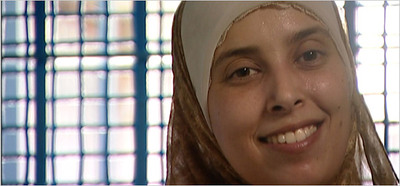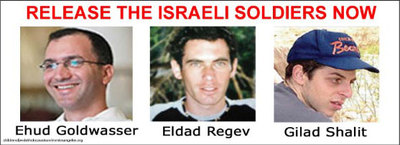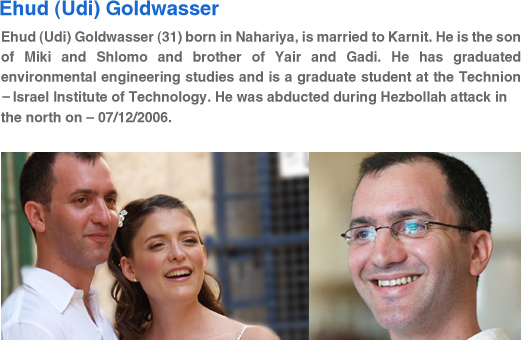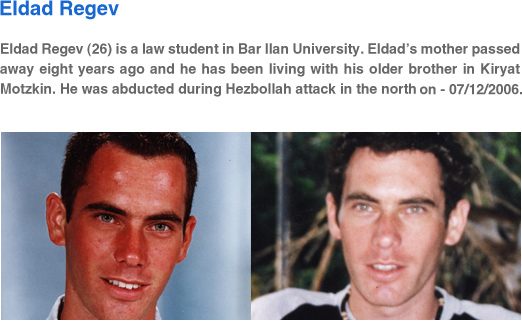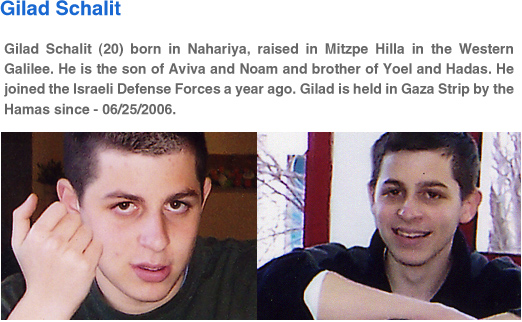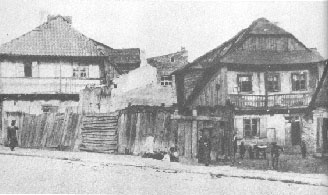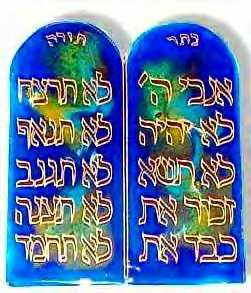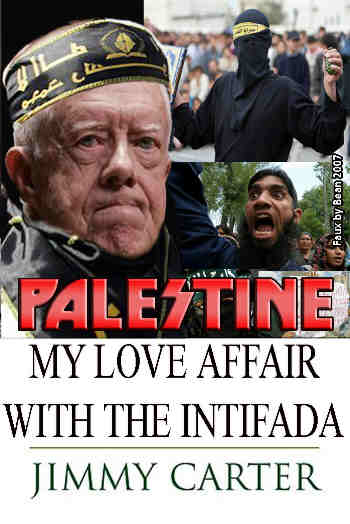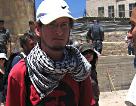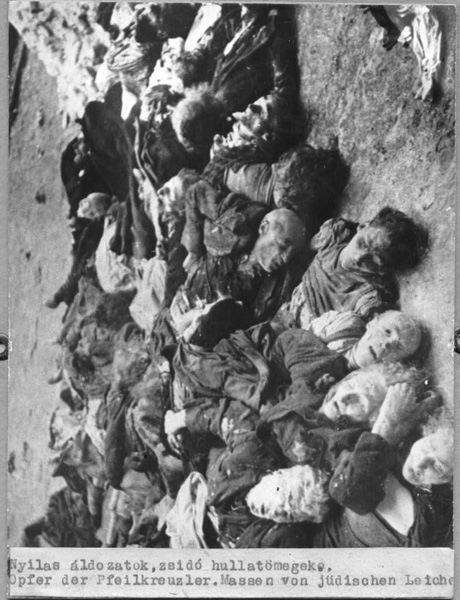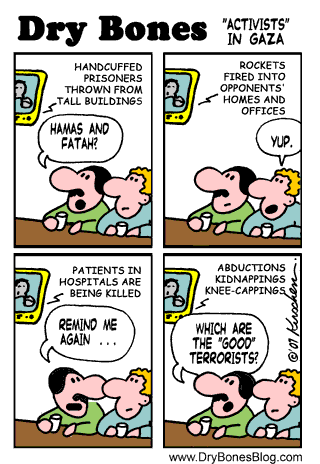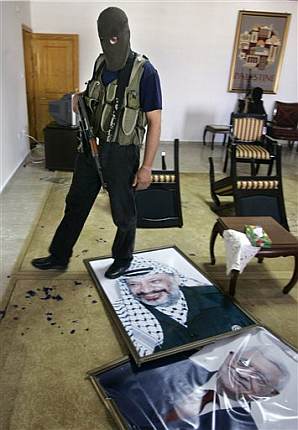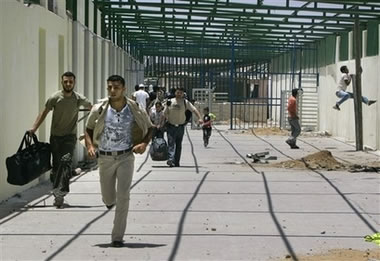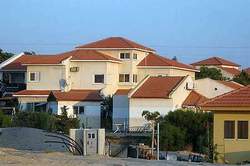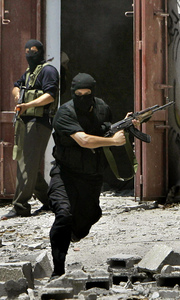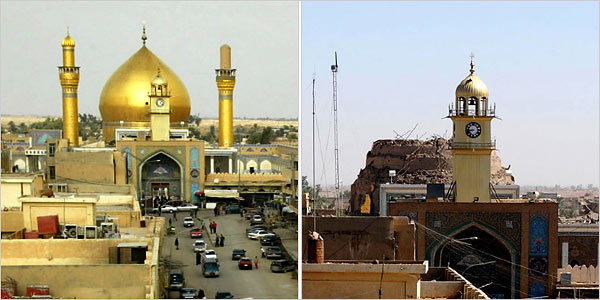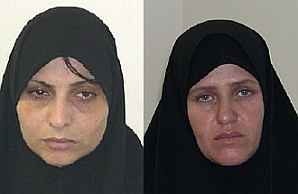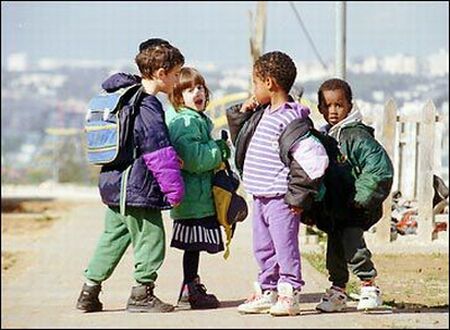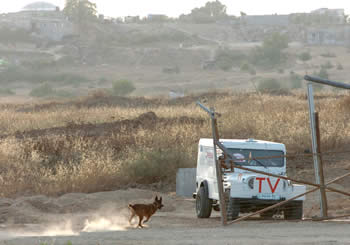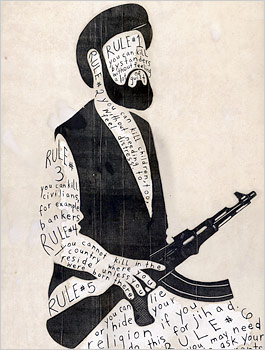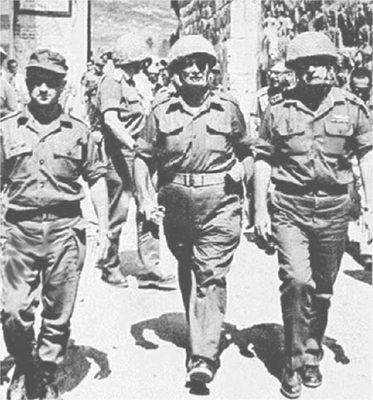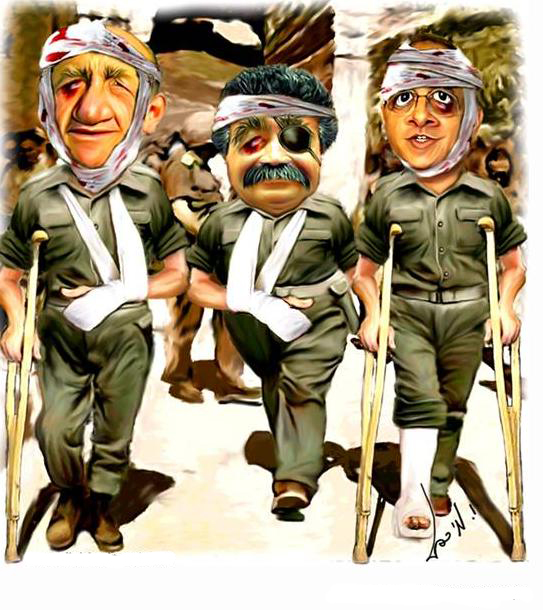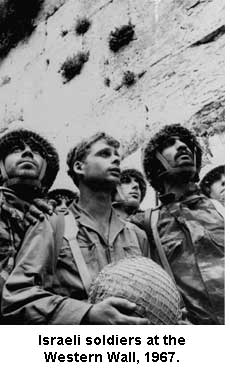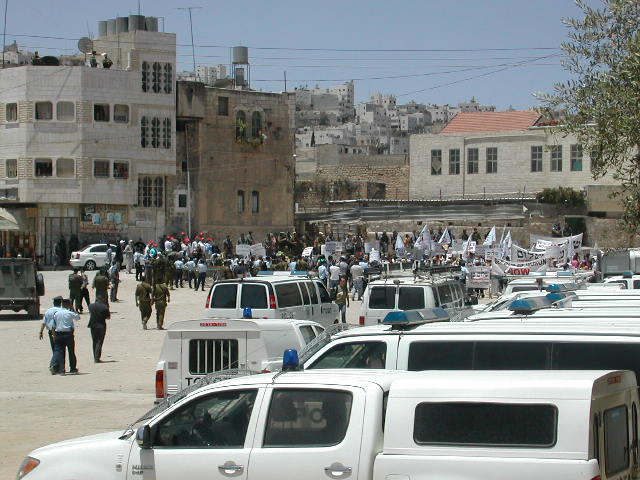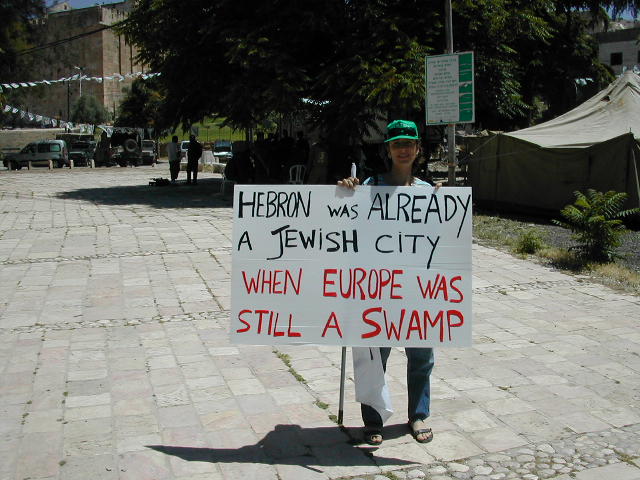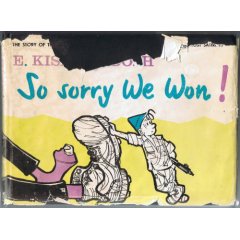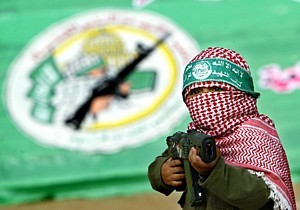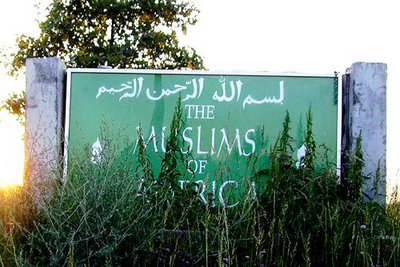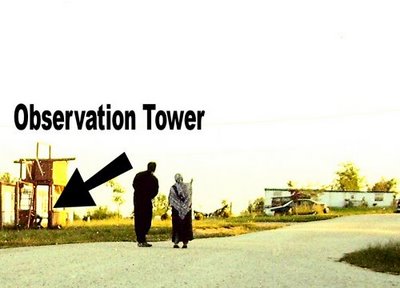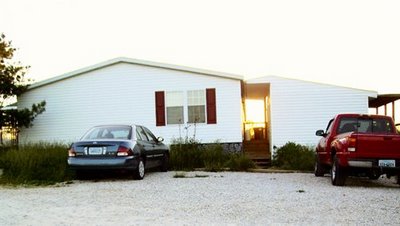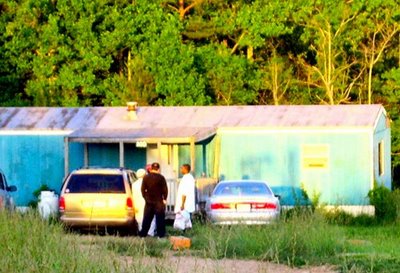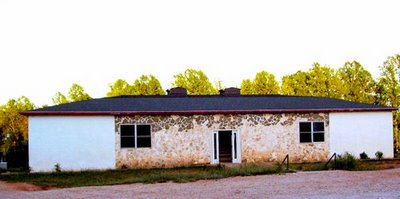|
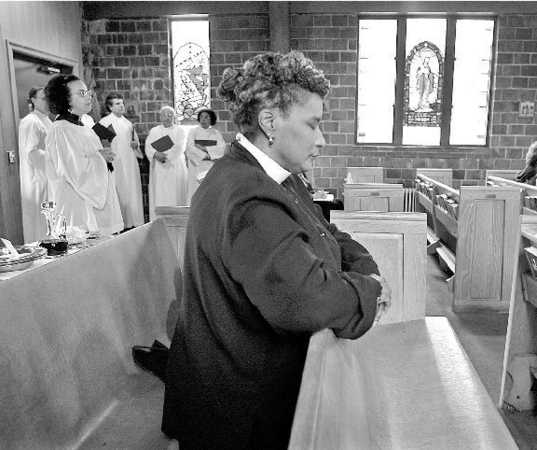 The Rev. Ann Holmes Redding kneels during a morning service in May at
St. Clement's of Rome Episcopal Church in Seattle. (Steve Ringman/Seattle Times)
The Rev. Ann Holmes Redding kneels during a morning service in May at
St. Clement's of Rome Episcopal Church in Seattle. (Steve Ringman/Seattle Times)
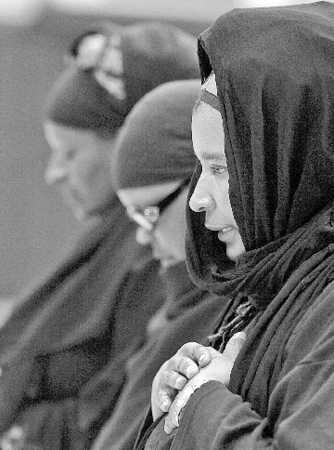 Redding prays in April with other members of the Al-Islam Center in
Seattle (John Lok/Seattle Times.
Redding prays in April with other members of the Al-Islam Center in
Seattle (John Lok/Seattle Times.
An Episcopal priest in the Diocese of Washington, according to the
Seattle Times, made the shahada and became an active
Muslim 15 months ago. But she is still serving as a Christian priest,
and her Bishop sees no problem:
Redding's bishop, the Rt. Rev. Vincent Warner, says he accepts Redding as an
Episcopal priest and a Muslim, and that he finds the interfaith possibilities
exciting. Her announcement, first made through a story in her diocese's
newspaper, hasn't caused much controversy yet, he said.
Got that? Accepting another religion that denies the divinity of
Jesus, that persecutes Christians and that punishes apostasy to
Christianity by death wherever it exerts temporal power "hasn't caused
much controversy yet."
I guess not. Once you swallow Presiding Bishop Katherine Jefferts
Schori's statement of sexual confusion that "our mother Jesus gives
birth to a new creation and we are his children," and once you accept
gay Bishops who are "married" to their male partners, a Muslim priest
is no big thing.
Another example of the fact that the leading exponents of intellectual life in the heart of Christendom are more often than not anti-Christian ideologues. And an anti-Christian ideology is now being accepted in the priesthood of The Episcopal Church itself.
It is really no wonder that more than 250 congregations that were in
The Episcopal Church are now affiliating with African diocesan
authorities, through he Archbishops of Nigeria, Kenya, and Uganda.
(Hat tip: Mark Steyn at the Corner
http://corner.nationalreview.com/post/
?q=MjZmMzU4YTBjZDAzNjRhMjg2YTExNTg4NjAwOGIyYWU=.)
"Episcopal Church Appoints First Openly-Muslim Bishop." Today,
The Seattle Times brings us this story:
Shortly after noon on Fridays, the Rev. Ann Holmes Redding ties on a black headscarf, preparing to pray with her Muslim group on First Hill.
On Sunday mornings, Redding puts on the white collar of an Episcopal priest.
She does both, she says, because she's Christian and Muslim.
Redding, who until recently was director of faith formation at St. Mark's Episcopal Cathedral, has been a priest for more than 20 years. Now she's ready to tell people that, for the last 15 months, she's also been a Muslim -- drawn to the faith after an introduction to Islamic prayers left her profoundly moved.
Her announcement has provoked surprise and bewilderment in many, raising an obvious question: How can someone be both a Christian and a Muslim..?
She says she felt an inexplicable call to become Muslim, and to
surrender to God -- the meaning of the word "Islam."
"It wasn't about intellect," she said. "All I know is the calling of my heart to Islam was very much something about my identity and who I am supposed to be.
"I could not not be a Muslim..."
Redding's bishop, the Rt. Rev. Vincent Warner, says he accepts
Redding as an Episcopal priest and a Muslim, and that he finds the
interfaith possibilities exciting.
With the benefit of hindsight, it should have been obvious that the
first female imam would be an Episcopalian...
"The Episcopal Church's Anti-Israel Media Campaign"
Dexter Van Zile
September 6, 2006
The Episcopal Church has approximately 2 million members and 7,200 churches in the U.S. and is part of the 77-million member Anglican Communion. Because of its presence in the U.S., the relative wealth of its members, and its connections to Anglicans throughout the world, the Episcopal Church is in a strategic position to influence attitudes toward Israel on both a national and global scale.
Sadly, the Episcopal Church is not a trustworthy observer of the Arab-Israeli conflict. The church's leaders and constitutive bodies routinely issue one-sided statements about the Arab-Israeli conflict, and its publications portray Israel as exclusively responsible for violence in the region. Moreover, the church has provided substantial support for anti-Israel activists in both the U.S. and the West Bank. Its so-called peace activism amounts to an ad hoc anti-Israel media campaign that serves to delegitimize Israel's rightful place amongst the nations of the world.
The Episcopal Church's antipathy toward Israel has not gone
unnoticed within the denomination. Concern about the one-sided
condemnations issued by church leaders, staffers and constituent
bodies was raised at the denomination's General Convention held in
Columbus, Ohio in June 2006, when three Bishops put forth a resolution
calling on the church to apologize for its "consistently unbalanced
approach to the conflict in the Middle East." An explanation
accompanying the resolution asserted correctly that "virtually all
General Convention resolutions concerning the Middle East -- and all
public policy statements by Episcopal agencies -- have relentlessly
criticized the state of Israel, portraying the Jewish state as an
oppressor nation and the Palestinian people as victims of Israeli
oppression."
A careful reading of public statements regarding the Arab-Israeli
conflict confirms that, indeed, the Episcopal Church has been
relentless and unfair in its criticism of Israel.
Anti-Israel Resolutions
The Episcopal Church is governed by a bicameral General Convention,
which meets every three years and is comprised of the approximately
200-member House of Bishops and the approximately 900 member House of
Deputies. Both clergy and lay members of the church serve in the House
of Deputies. When the General Convention is not in session, the church
is governed by an Executive Council comprised of bishops, clergy and
lay members.
Both the General Convention and the Executive Council have exhibited a marked tendency to issue one-sided statements about the Arab-Israeli conflict that hold Israel to a utopian standard of conduct and its adversaries to no standard at all. Some examples include:
- In November 1994, the Executive Council approved a resolution asking Motorola to "establish a policy to prohibit the sale of products or provision of services to any settlement, including persons residing in those settlements, located in the Occupied Territories." This resolution, passed one month after two Hamas suicide bombings had killed 13 Israelis and wounded 80, did not offer any condemnation of Palestinian violence or call on companies to ensure that equipment they sell to the Palestinians is not used for terror attacks.
- In June 1995, the Executive Council passed a resolution asserting that Jerusalem should be a shared city (ignoring decades of Arab aggression against Israel that make such an arrangement untenable) and condemning the construction of settlements in the West Bank including East Jerusalem.
- In July 2000, the General Convention approved a resolution affirming the "right of return for every Palestinian, as well as restitution/compensation for their loss as called for by the United Nations." In fact, under international law there is no such collective "right of return." Moreover, were such a "right" exercised, the result would be the elimination of Israel as a Jewish state. Finally, the resolution offered no acknowledgment of the Jewish refugees from Arab countries who came to Israel after its rebirth in 1948.
- In August 2003, the General Convention approved resolutions condemning the construction of the security barrier and home demolitions without explicitly condemning or calling for an end to Palestinian suicide bombings, drive-by-shootings and other violence.
- In June 2006, so-called peace and justice activists within the Episcopal Church presented draft resolutions to the General Convention condemning the security barrier without asking the Palestinians to stop the terror attacks that prompted its construction.
Other problems with the resolutions as submitted by the denomination's peace and justice community to the most recent General Convention include:
- Another call for Jerusalem to be a shared city, which denies
58 years of persistent Arab violence and aggression against Israel. It
should be noted as well there is no evidence the church ever called
for Jerusalem to be a shared city when its eastern half -- containing
Judaism's holiest site, the Temple Mount -- was illegally occupied by
Jordan from 1948 to 1967.
- A condemnation of unilateral action -- a clear reference to the withdrawal from Gaza and the security barrier.
- A failure to call upon Israel's adversaries to acknowledge Israel's right to exist.
- Silence about Palestinian suicide bombing.
- A failure to call upon Hamas to dismantle terrorist infrastructure.
- Silence about anti-Jewish and anti-Israel hate-mongering in mosques, media and children's textbooks.
After pressure from Christians for Fair Witness in the Middle East, amendments that called for Palestinian leaders to accept Israel's right to exist, greater fiscal transparency in the Palestinian Authority and condemnations of Palestinian terrorism were added to the resolutions. Because of a clerical error, the resolutions were not approved by the General Convention. One question which needs to be asked is why so-called peace and justice activists needed to be reminded of the need to include these changes.
Statements from Clergy
Bishops and Priests of the Episcopal Church have also weighed in on the Arab-Israeli conflict in a partisan manner.
- On June 30, 2006, Rev. Frank Griswold, presiding bishop of the Episcopal Church, signed a letter to President Bush asking him to restrain the Israeli government's response to the kidnaping of an Israeli soldier, but did not similarly ask the President to pressure the Palestinians to release the soldier in question or to stop their Qassam rocket attacks emanating from Gaza. This letter, which was also signed by Rev. Mark S. Hanson, Presiding Bishop of the Evangelical Lutheran Church in America, failed to acknowledge other violent acts of war perpetrated by the Palestinians, including other kidnapings and hundreds of rocket attacks from Gaza.
- On July 12, 2006, the Boston Globe reported that Bishop
M. Thomas Shaw of the Episcopal Diocese of Massachusetts would protest
the Israeli incursion into Gaza in front of the Israeli Consulate in
Boston. At this protest, held on the same day Hezbollah launched
rockets into Israel and kidnapped two soldiers, so-called peace and
justice activists accused Israel of "genocide." The presence of Bishop
Shaw in clerical garb at this protest lent unwarranted credence to
these false accusations.
Anti-Israel Church publications
The Episcopal Church's publicity about the Arab-Israeli conflict offers a distorted historical and moral narrative that downplays Israel's attempts to achieve peace and ignores the role Palestinian leaders have played in prolonging the war. Articles published by the Episcopal Church offer little, if any, acknowledgment of Arab rejectionism of Israel's right to exist, Muslim anti-Semitism or Palestinian terrorism.
For example, on July 31, 2001 the Episcopal Church's "Peace and
Justice Ministries" published a patently dishonest portrayal of the
Camp David offer of 2000 which repeats many of the lies and
distortions put forth by Palestinian leaders at the beginning of the
Second Intifada.
This document states:
Israel's proposal divided Palestine into four separate cantons
surrounded by Israel: the Northern West Bank, the Central West
Bank, the Southern West Bank and Gaza. Going from any one area to
another would require crossing Israeli sovereign territory and
consequently subject movement of Palestinians within their own
country to Israeli control. Not only would such restrictions apply
to the movement of people, but also to the movement of goods, in
effect subjecting the Palestinian economy to Israeli control.
Lastly, the Camp David proposal would have left Israel in control
over all Palestinian borders thereby allowing Israel to control
not only internal movement of people and goods but international
movement as well. Such a Palestinian state would have had less
sovereignty and viability than the Bantustans created by the South
African apartheid government.
What the document does not acknowledge is that by the end of negotiations brokered by the Clinton Administration, Israeli Prime Minister Ehud Barak agreed to a settlement that would have ceded all of Gaza, approximately 95 percent of the West Bank, and an additional 1-3 percent of Israeli territory from its pre-1967 border to the Palestinians. Dennis Ross, U.S. Envoy to the Middle East from 1988 to 2000 who presided over the Camp David/Taba negotiations, describes the final offer to the Palestinians as follows:
[Ehud] Barak's government had now formally accepted ideas
that would effectively divide east Jerusalem, end the IDF's
presence in the Jordan Valley, and produce a Palestinian State in
roughly 97 percent of the West Bank and 100 percent of Gaza.
(Dennis Ross, The Missing Peace: The Inside Story of the Fight
for Middle East Peace, page 755).
The claim about "bantustans" or cantons is also contradicted by
Ross, who told Fox News on April 21, 2002 that:
... the Palestinians would have in the West Bank an area that was contiguous. Those who say there were cantons, completely untrue. It was contiguous... And to connect Gaza with the West Bank, there would have been an elevated highway, an elevated railroad, to ensure that there would be not just safe passage for the Palestinians, but free passage. (Fox News, April 21, 2002)
The Episcopal Church's statement regarding the Camp David
negotiations also asserts "there is no evidence that the PA or the
majority of Palestinians have abandoned the two-state solution" when
in fact, Yasir Arafat routinely spoke of the destruction of Israel to
his followers while talking peace with Israel and the Clinton
Administration.
Moreover, a distorted timeline on the church's Web site deceptively
omits key aspects of the Arab-Israeli conflict. For example, the
timeline uses the word terrorism once -- in reference to Jewish
violence against Great Britain in 1946 -- while making no mention of
the suicide attacks against Israeli civilians that began in 1994. And
while omitting any direct reference to Palestinian terrorism, the
timeline emphasizes that Israeli-Arabs were shot during the Second
Intifada.
The chronology describes the Six Day War as follows: "Israel conquers the Sinai, Golan Heights, Gaza Strip, West Bank, and East Jerusalem, which it annexed." What the chronology omits is that Egypt provoked the war by closing the Straits of Tiran and blockading the Israeli port of Eilat, an act of war under international law, that Egypt expelled UN peacekeeping troops from the Sinai Peninsula, and that Egypt issued bellicose statements promising the imminent destruction of Israel. And while referencing UN Security Council Resolution 242, which established the "land-for-peace" principle, it does not mention the Arab response to that resolution: the Three No's of Khartoum issued by the Arab League in 1967 -- no recognition, no negotiation and no peace with Israel. Israel gained territory in a defensive war, tried to negotiate and was rebuffed. The chronology conveys none of this.
The chronology reports that Israel invaded Lebanon in 1978 and 1982 without describing the attacks by the PLO that prompted these invasions.
The chronology states that the Camp David negotiations broke down, without acknowledging that Yasir Arafat walked away from negotiations -- without making a counteroffer -- after Israel made far-reaching land for peace offers.
Moreover, the chronology places responsibility for the Second Intifada on Ariel Sharon's visit to the Temple Mount in September 2000, even as Palestinian officials have admitted preparing for the Second Intifada immediately after Yasir Arafat returned from the failed negotiations at Camp David in July.
The chronology also fails to report that Sharon's visit was coordinated with the Palestinian Authority's security chief.
The chronology states that in 2002, "[r]eoccupation of Palestinian areas begins" without reporting that the return of Israeli troops to the West Bank was precipitated by an unprecedented campaign of violence that killed hundreds of Israelis. Operation Defensive Shield began one day after the March 27 bombing at a Passover Seder in a Netanya hotel that killed 30 Israelis and injured 140. In that month of March alone 128 Israelis were murdered in Palestinian terror attacks. To place this number in context, consider that as a percentage of the Israeli population this would be comparable to the killing of 6400 Americans, or more than two 9/11's in one month. What possible justification could the church have for keeping such crucial information from its readers?
The chronology ends in 2003, and as a result omits any reference to Israel's withdrawal from the Gaza Strip and to the hundreds of Palestinian rocket attacks from Gaza into Israel that followed.
Episcopal News Service
A search of the archives of the Episcopal News Service (ENS)
reveals a similar bias against Israel. As with their timeline,
resolutions and public statements about the Arab-Israeli conflict,
this bias manifests itself through generally ignoring violence against
Israeli civilians, presenting detailed coverage of anti-Israel
criticism, omitting any response from Israeli officials and a tendency
to repeat without scrutiny allegations issued by Anglican Archbishop
Riah Abu al-Assal of Jerusalem. (The antipathy expressed by Bishop
Riah and Sabeel is discussed below.) Articles covering the ongoing
violence perpetrated against Israelis, however, are few and far
between, while articles dedicated to detailing the suffering of the
Palestinians are routine fare for the ENS.
Of the more than 200 articles in the ENS archives, the headlines of four are readily identifiable as sympathetic to Israel's security concerns. Two of these articles were written in response to comments by Iranian President Mahmoud Ahmadinejad who in October 2005 called for Israel to be "wiped off the map."
The other two articles with headlines readily identifiable as sympathetic to Israel's security concerns include a description of efforts by the International Fellowship of Christians and Jews to provide bomb detectors to public buses in Israel. (It should be noted that this article was initially published by the Ecumenical News Service). The other article describes the creation of a pro-Israel group -- the Episcopal-Jewish Alliance, founded in response to anti-Israel activism by Bishop Thomas Shaw in 2002.
Notwithstanding these two articles, the Episcopal Church's coverage of the Arab-Israeli conflict fails to provide any real description of the threats faced by the Israelis as a result of Palestinian terror. Emblematic of this bias is an article about the impact of the security barrier Israel is building to stop terror attacks from the West Bank. The article offers virtually no explanation as to why the barrier is constructed, even in a section ostensibly devoted to "Security issues." The paragraphs and the heading follow:
Security issues
In a visit to Bethlehem, the group passed through a part of
Israel's separation barrier, built inside the pre-1967 border (the
"Green Line"), a nine-meter-high wall around the city, and noted that
Rachel's Tomb, another venerated holy site, has been placed on the
Jerusalem side of the barrier, cutting off access from Bethlehem where
it is located. The Israeli government maintains the barrier is
built to provide security to Israel. (emphasis added)
"What the commission members found the most shocking of all was that the Wall or Separation Barrier or Fence, as it is variously called, is perceived by all parties as being almost entirely underwritten by the American taxpayer," said Michele Spike, another member of the commission. "The Wall invades Palestinian fields, dividing grazing lands -- including the valley of the shepherds at Bethlehem -- and, at times, encircling Palestinian cities."
The delegation observed that some parts of the separation barrier cut off Palestinians from one another and often makes a two-minute walk into a journey of a mile or more. Family members or friends often find it difficult to see each other, which has hugely negative effects on Palestinian society, the group learned.
This article devotes one sentence to describe why the
barrier was built and goes into extensive detail about its impact on
Palestinians. While this impact is undeniable, so is the impact of
Palestinian terrorism on Israeli civilians -- which the article
entirely omits. The decision to build the barrier was precipitated by
an unprecedented campaign of suicide bombings that killed Israeli
civilians in markets, movie theaters and bus stations. Offering
readers such key facts would provide context for Israel's actions, but
the author of the article, Brian Grieves, director of the Episcopal
Church's Office of Peace and Justice Ministries, did not see fit to
include them.
The Episcopal News Service has also devoted substantial coverage to
Mordechai Vanunu, who served 18 years in prison for revealing secrets
about Israel's nuclear weapons program to the British press. Vanunu,
who is regarded by Israelis as a traitor, is portrayed by the ENS and
the Episcopal Peace Fellowship (which named an award after him in the
1990s) as a "whistleblower." While the Episcopal Church and its
constituent bodies have used the court rulings regarding Vanunu's
status in Israel as an opportunity to once more direct harsh criticism
towards Israel, the church has remained relatively silent about Iran's
nuclear weapons program. A search of the Episcopal Church's website
(episcopalchurch.org) reveals almost 50 entries about Vanunu, but
fewer than five entries about the threat posed by Iran's nuclear
weapons program. Clearly, the Episcopal Church seems more concerned
about the nuclear weapons held by a representative democracy trying to
defend itself than it is about a nuclear weapons program pursued by a
repressive dictatorship whose leaders have, on numerous occasions,
called for Israel's destruction.
Support for Sabeel
Another salient aspect of the Episcopal Church's anti-Israel stance is the pattern of links between it and Ecumenical Liberation Theology Center headquartered in Jerusalem (Sabeel) and its sister organization, Friends of Sabeel North America (FOSNA).
These two organizations demonize Israel and wrap Palestinian violence against Israelis in the mantle of innocent suffering.
(For more background please see Sabeel's Teachings of Contempt
("A Judeo-Christian Alliance Report" by Dexter Van Zile, June 2005)and
"Sabeel's One State Agenda.")
Sabeel is itself a creature of the Anglican Communion and has received substantial institutional support from the Episcopal Church and substantial financial support from Episcopalians in the U.S. When Sabeel's sister organization, FOSNA was founded in 1996 the Episcopal Church was one of its primary sources of support. In the intervening years, both Sabeel and FOSNA have been able to reach out to other denominations for financial and logistical support, but the Episcopal Church remains a significant backer. Mainline churches such as the Presbyterian Church (USA), the Disciples of Christ and the United Methodist Church routinely send missionaries who work in Sabeel's office in Jerusalem. Upon returning to the United States, these missionaries play an important role in the passage of anti-Israel resolutions by their denominations.
As a result of the Episcopal Church's financial and institutional support to Sabeel and FOSNA, anti-Israel activists have had the resources and credibility necessary to convince other mainline Protestant churches in the U.S. to approve resolutions that condemn Israel while giving short- shrift to the motive and impact of Palestinian violence against Israeli civilians.
For example, three denominations that have asked Israel to take
down the security barrier on the West Bank without asking the
Palestinians to stop the terror attacks that prompted its construction
--the Presbyterian Church (USA), the United Church of Christ and the
Disciples of Christ -- have been subject to sustained lobbying by
Sabeel and FOSNA activists.
Links between the Episcopal Church and Sabeel and FOSNA include the following:
- Sabeel's Founder is Anglican Priest Naim Ateek, who before his retirement served as Canon at St. George's Cathedral in Jerusalem.
- Edmond Browning, former Presiding Bishop of the Episcopal Church is currently listed as the President of FOSNA, and as having donated $10,000 to the organization (January 2006 Sabeel newsletter).
- Rev. Canon Dick Toll, an Episcopal priest from Milwaukie, Oregon is national chair for FOSNA.
- The group's IRS disclosure form (990) for 1998 states that its primary founders and board members are from the Episcopal Church.
In short, the three most prominent members of Sabeel's leadership in Jerusalem and the United States are members of the Anglican communion, one of them a former Presiding Bishop of the Episcopal Church.
The Episcopal Church provides a substantial amount of publicity and institutional support for Sabeel's activities in the U.S.:
- In June 2006, the Episcopal Peace Fellowship, an affiliate of
the Episcopal Church awarded Rev. Naim Ateek its John Nevin Sayre
Award for peacemaking. At the dinner where this award was bestowed,
Rev. Canon Brian Grieves, director of the Episcopal Church's Office of
Peace and Justice Ministries introduced Rev. Ateek and defended him
from so-called "?slander and demonizing' tactics" and said the award
serves as "a rebuke to those voices who would silence Naim's own
strong voice as a Palestinian and a Christian living under
occupation." (Grieves was responding to call issued by Christians for
Fair Witness on the Middle East for Rev. Ateek to apologize for his
anti-Semitic language in reference to Israel.)
- Former Presiding Bishop Edmond Browning was a prominent participant in a Sabeel Conference in 2004, sharing the stage with Yasser Arafat and Naim Ateek. Photos of Bishop Browning -- distributed by the Episcopal News Service -- sitting next to Arafat helped to legitimize Arafat in the minds of Episcopalians.
Bishop Riah's Anti-Israel Ministry
It should also be noted that the Episcopal Church provides a substantial amount of support to Bishop Riah El-Assal, the Anglican Bishop in Jerusalem, a well-known apologist for Palestinian terrorism.
For example, at a luncheon sponsored by the American Friends of the Episcopal Diocese in Jerusalem, where Bishop Riah was introduced by Phoebe Griswold, wife of the current Presiding Bishop, he stated that Americans did not have an accurate view of Yasser Arafat. After explaining that he first met Arafat in the 1980s, Bishop Riah said he found Arafat "to be charming." This luncheon took place during the denomination's 2006 General Convention in Columbus, Ohio.
Bishop Riah has also worked to incite hostility toward Israel during its recent conflict with Hezbollah and Hamas. On July 26, he posted a letter on his diocesan website that read: "For the past forty years we have been largely alone on this desert fighting a predator that not only has robbed us of all but a small piece of our historic homeland, but threatens the traditions and holy sites of Christianity."
Bishop Riah ignores Israel's efforts to negotiate with those who actively seek its destruction, and blames Israel for the decline of the Christian community in the West Bank. Contrary to Bishop Riah, the emigration of Christians is largely the consequence of Muslim extremists who, in addition to promoting chaos in the region, routinely target and mistreat Christians.
In this letter Bishop Riah also accuses Israel of racism, hate crimes, terror, violence, murder and ethnic cleansing in the disputed territories. In reference to the conflict with Lebanon-based Hezbollah, Bishop Riah portrays Israeli government's response to provocation as a "disproportionate reaction ... consistent with their opportunistic responses in which they destroy their perceived enemy."
In short, Bishop Riah exaggerates Israeli misdeeds and whitewashes
its adversaries of their undeniably malign motives. In Bishop Riah's
mind, Israel is a marauding murdering nation overreacting to Arab
aggression he does not see fit to acknowledge.
Bishop Riah's tendency to exaggerate Israeli misdeeds was evident
when he appeared on The NewsHour with Jim Lehrer on April 23,
2002. During his appearance, Bishop Riah repeated Palestinian claims
that 500 people were killed during the battle at Jenin:
Many of them were of the aged, still staying in their homes,
buried under the rubble.
Previous CAMERA analysis reveals that Palestinian assertions of 500 deaths at Jenin had been demonstrated as gross exaggerations on April 16, 2002 -- one week before Bishop Riah's appearance on PBS, yet the Bishop felt entitled to repeat this false statement as fact.
For more information about Bishop Riah's anti-Israel ministry, please see Arab Christians Vilify Israel previously published by CAMERA.
Conclusion
The Episcopal Church's public pronouncements regarding the Arab-Israeli conflict exhibit a troubling antipathy toward the Jewish State. Through its support for Sabeel and FOSNA, and its efforts to broadcast a distorted anti-Israel message to its members and the general public, the Episcopal Church has helped delegitimize Israel as a country with a rightful place amongst the nations of the world.
"Perplexing many, Episcopal priest announces she's a Muslim, too"
Janet I. Tu
The Seattle Times
June 18, 2007
Tacoma, WA
Shortly after noon on Fridays, the Rev. Ann Holmes Redding ties on a
black headscarf, preparing to pray with her Muslim group on First
Hill.
On Sunday mornings, Redding puts on the white collar of an Episcopal priest.
She does both, she says, because she's Christian and Muslim.
Redding, who until recently was director of faith formation at St. Mark's Episcopal Cathedral, has been a priest for more than 20 years. Now she's ready to tell people that, for the past 15 months, she's also been a Muslim -- drawn to the faith after an introduction to Islamic prayers left her profoundly moved.
Her announcement has provoked surprise and bewilderment in many, raising an obvious question: How can someone be both a Christian and a Muslim?
But it has drawn other reactions too. Friends generally say they support her, while religious scholars are mixed: Some say that, depending on how one interprets the tenets of the two faiths, it is, indeed, possible to be both. Others consider the two faiths mutually exclusive.
"There are tenets of the faiths that are very, very different," said Kurt Fredrickson, director of the doctor of ministry program at Fuller Theological Seminary in Pasadena, Calif. "The most basic would be: What do you do with Jesus?"
Christianity has historically regarded Jesus as the son of God and God incarnate, both fully human and fully divine. Muslims, though they regard Jesus as a great prophet, do not see him as divine and do not consider him the son of God.
"I don't think it's possible" to be both, Fredrickson said, just like "you can't be a Republican and a Democrat."
Redding, who will begin teaching the New Testament as a visiting assistant professor at Seattle University this fall, has a different analogy: "I am both Muslim and Christian, just like I'm both an American of African descent and a woman. I'm 100 percent both."
Redding doesn't feel she has to resolve all the contradictions. People within one religion can't even agree on all the details, she said. "So why would I spend time to try to reconcile all of Christian belief with all of Islam?
She says she felt an inexplicable call to become Muslim, and to surrender to God -- the meaning of the word "Islam."
"It wasn't about intellect," she said. "All I know is the calling of my heart to Islam was very much something about my identity and who I am supposed to be.
Redding's situation is highly unusual. Officials at the national Episcopal Church headquarters said they are not aware of any other instance in which a priest has also been a believer in another faith. They said it's up to the local bishop to decide if a priest could continue in that role.
Redding's bishop, the Rt. Rev. Vincent Warner, says he accepts Redding as an Episcopal priest and a Muslim, and that he finds the interfaith possibilities exciting. Her announcement, made through a story in her diocese's newspaper, hasn't caused much controversy yet.
Some Muslim leaders are perplexed.
Being both Muslim and Christian -- "I don't know how that works," said Hisham Farajallah, president of the Islamic Center of Washington.
But Redding, 55, has been embraced by leaders at the Al-Islam Center of Seattle, the Muslim group she prays with.
"Islam doesn't say if you're a Christian, you're not a Muslim," said programming director Ayesha Anderson. "Islam doesn't lay it out like that."
Redding believes telling her story can help ease religious tensions, and she hopes it can be a step toward her dream of creating an institute to study Judaism, Christianity and Islam.
"I think this thing that's happened to me can be a sign of hope," she said.
As much as she loves her church, she has always challenged it. She calls Christianity the "world religion of privilege." She has never believed in original sin. And for years she struggled with the nature of Jesus' divinity.
Ironically, it was at St. Mark's that she first became drawn to Islam.
In fall 2005, a local Muslim leader gave a talk at the cathedral, then prayed before those attending. Redding was moved.
Then in the spring, at a St. Mark's interfaith class, another Muslim leader taught a chanted prayer and led a meditation on opening one's heart. The chanting appealed to the singer in Redding; the meditation spoke to her heart.
Around that time, her mother died, and then "I was in a situation that I could not handle by any other means, other than a total surrender to God," she said.
She still doesn't know why that meant she had to become a Muslim. All she knows is "when God gives you an invitation, you don't turn it down."
Aside from the established sets of prayers she recites in Arabic five times each day, Redding says her prayers are neither uniquely Islamic nor Christian. They're simply her private talks with God or Allah -- she uses both names interchangeably. "It's the same person, praying to the same God."
Some scholars are skeptical.
"The theological beliefs are irreconcilable," said Mahmoud Ayoub, professor of Islamic studies and comparative religion at Temple University in Philadelphia. Islam holds that God is one, unique, indivisible. "For Muslims to say Jesus is God would be blasphemy."
Redding knows there are many Christians and Muslims who will not accept her as both.
"I don't care," she says. "They can't take away my baptism." And as she understands it, once she's made her profession of faith to become a Muslim, no one can say she isn't that, either.
While she doesn't rule out that one day she may choose one or the
other, it's more likely "that I'm going to be 100 percent Christian
and 100 percent Muslim when I die."
And from our friends at the Evangelical Lutheran Church (Cedar
Rapids Iowa) who have spent millions of dollars proselytising for
Islam and Middle-Eastern dictators on their "Mosaic" Television
channel
(http://www.elca.org/mosaic/summer03.html).
Understanding Islam
Summer 2003 MOSAIC
http://www.elca.org/youth/helpsheets/muslim.html
What do Muslims believe? Who was the Prophet Mohammed? How does
Islam relate to the Christian faith? This DVD helps members of your
congregation understanding of Islam.
Islam is among the world's fastest-growing religions. Since
September 11, interest in Islam and the growing number of Muslim
neighbors in the United States has skyrocketed. MOSAIC visits the
oldest mosque in America--located in Cedar Rapids, Iowa, since
1935--and spends time in the largest Muslim community in the U.S.,
Dearborn, Mich. The video includes interviews with Islamic scholars
and Christian theologians, as well as people on the street. MOSAIC
comes with a helpful user's guide that makes this resource ideal for
adult forums, confirmation classes and youth ministry
MOVING BEYOND MUSLIM MEDIA IMAGES
By the turn of the century, Islam will be the second largest
religion... -- Muslim Friends: Their Faith and Feeling, An
Introduction to Islam
http://www.elca.org/youth/helpsheets/muslim.html
Contact Michael Travis at michaelmgr@gmail.com
To Go To Top
| 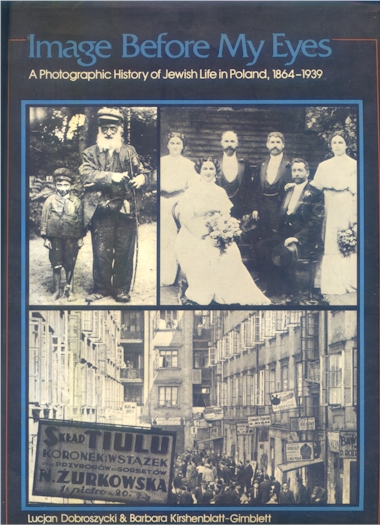
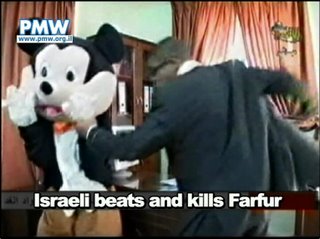
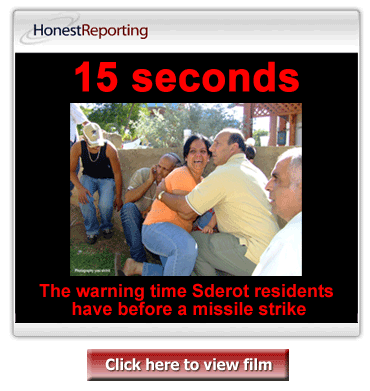 CLICK HERE TO VIEW FILM.
CLICK HERE TO VIEW FILM.

